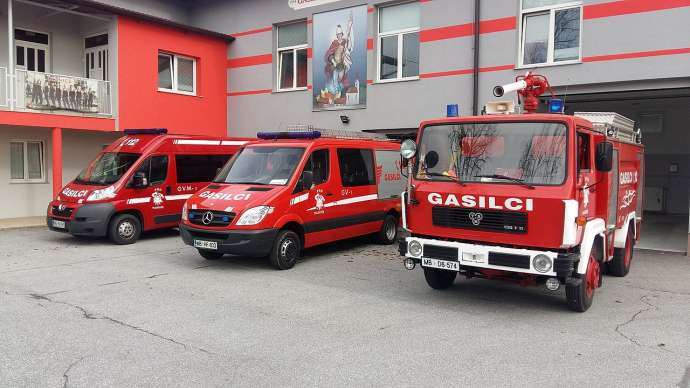STA, 10 January 2019 - Slovenians place the highest trust in firefighters, nurses and scientists, but they distrust politicians and priests the most, while they also hold domestic SMEs in high regard, a survey has found.
The survey, conducted by pollster Valicon, showed fire-workers enjoying a 93% trust rate as the most trustworthy profession, followed by nurses (76%) and scientists (61%).
The least trusted professions are priests (-53%), government ministers (-69%) and politicians in general (-86%), however Valicon said that all of them fared better than December 2016 when the survey was conducted for the first time.
The most trustworthy institution or organisation is Slovenian small and medium-sized businesses (SMEs) with a 56% trust rate, followed by the company or organisation where the respondents work 38%.
The police force ranks third at 30%, followed by the armed forces at 22%, while the list is trailed by the ruling coalition parties (-61%), the National Assembly (-64%) and opposition parties (-67%).
The trust rate is calculated based a margin between the number of those who say they trust an institution fairly or very and those who say they do not trust it at all or rather don not than do.
Many still dissatisfied with the general situation in the country
The survey, called Slovenia's Mirror, also found that the proportion of those who are satisfied with the situation in the country in general rose from 2% at the time of mass anti-establishment protests in December 2012 to 28.4% in December 2018.
In turn, the proportion of the dissatisfied fell from 91% to 43.9%, while 27.7% said they were neither satisfied nor satisfied.
More than seven out of ten said they were happy personally, which compares to 58% six years ago.
The proportion of those who are optimistic about the future rose by more than ten percentage points to 43.5%, while the percentage of the glum nearly halved to 18%.
But only 20% believe that the situation in society is turning for the better, against roughly 40% who believe it is turning for the worse and as many who think the situation is not changing.
The survey was conducted based on an online panel of respondents between 14 and 16 December and between 21 and 23 December involving 1,001 respondents.







